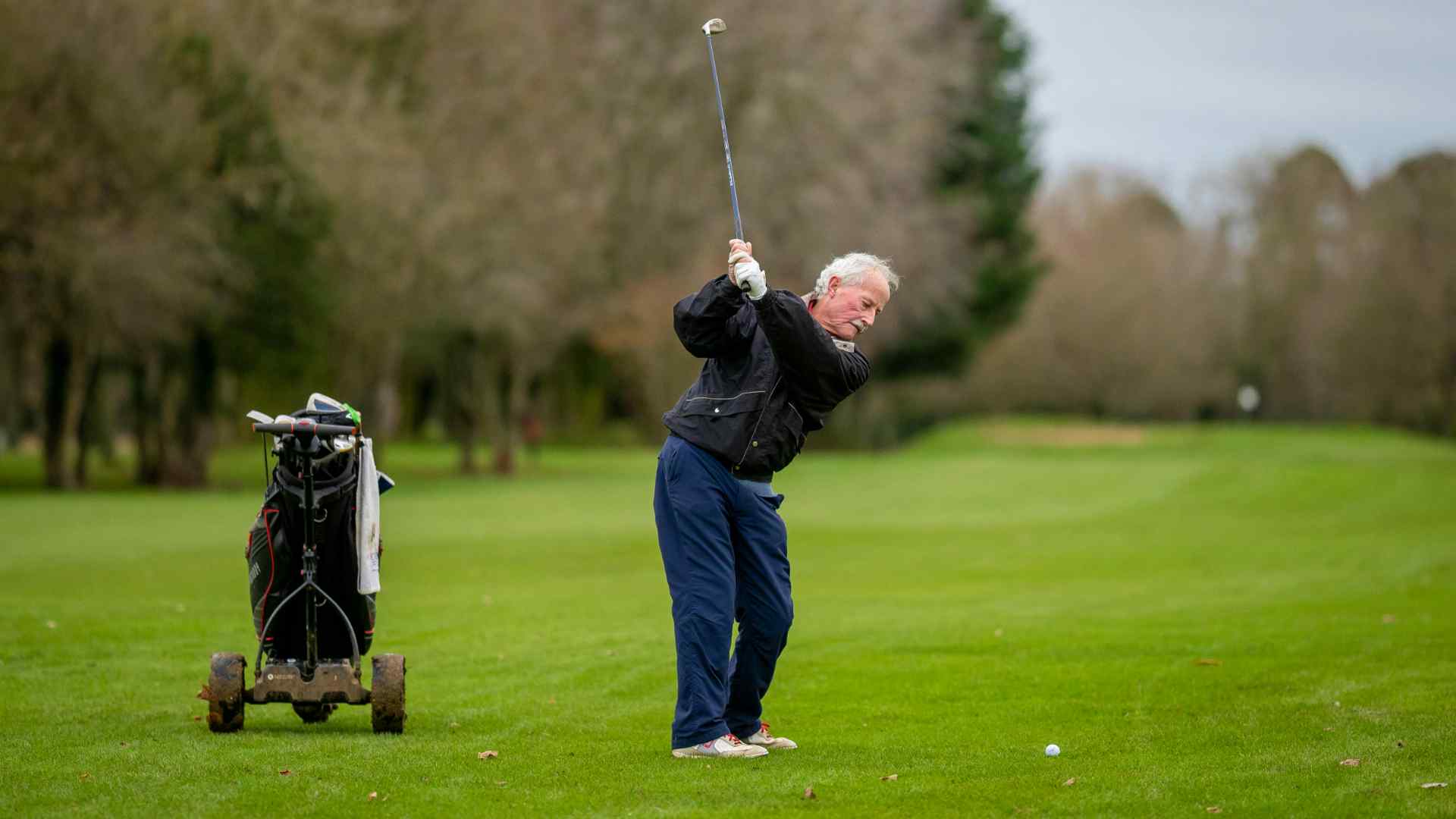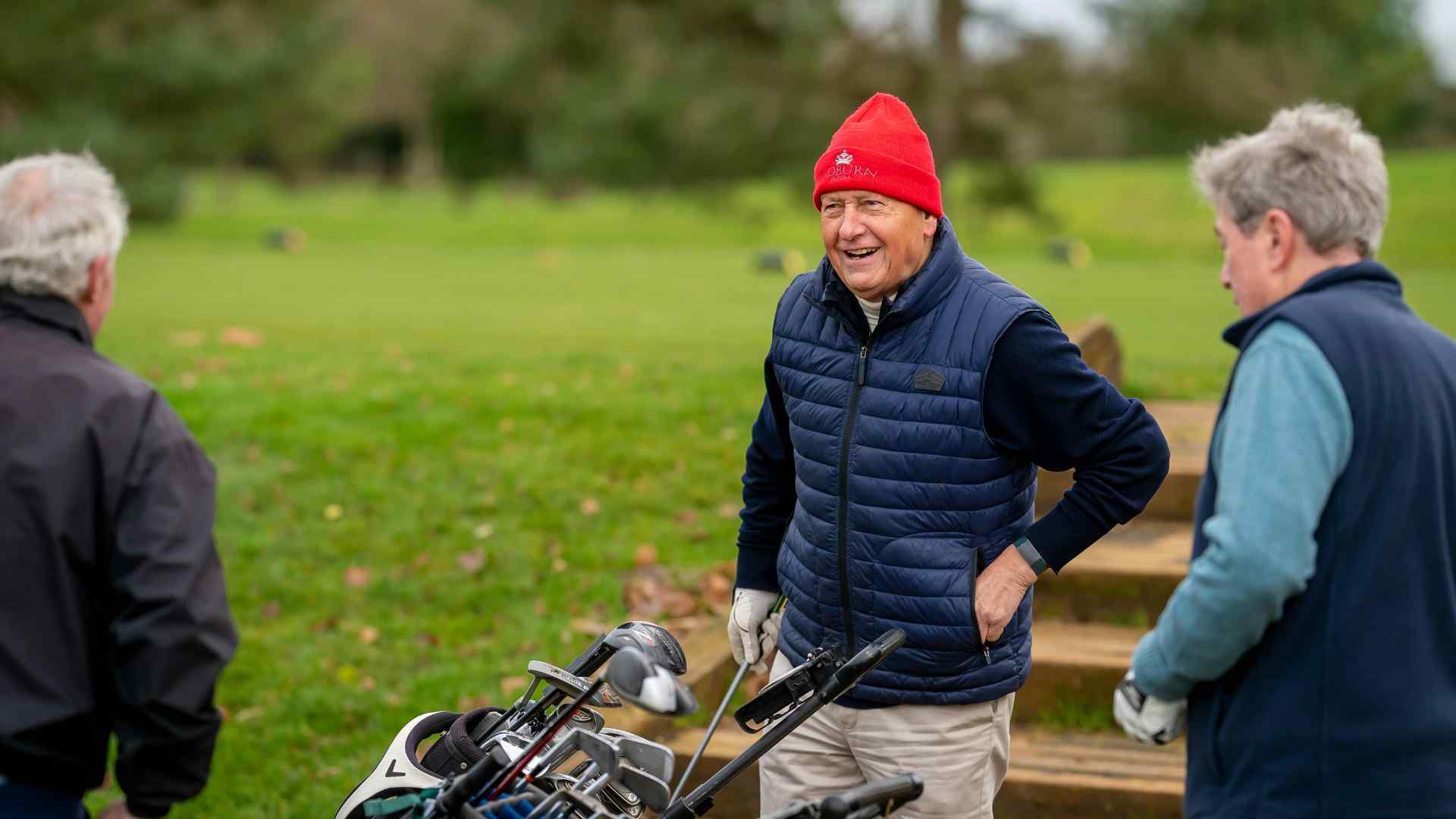

Despite the fact that playing golf in retirement has become a bit of a cliché, there are so many benefits of playing or taking up the sport – both physical and mental – that it’s worth considering.
Golf is a game enjoyed by all ages and both sexes - but it’s particularly good for retirees. Despite the fact that playing golf in retirement has become a bit of a cliché, there are so many benefits of playing or taking up the sport – both physical and mental – that it’s worth considering. And, of course, in retirement, you can take advantage of the fact that many golf courses are quiet during the week. Here, we’ve put together a few of the most compelling reasons for taking up golf as well as few suggestions of places to play.
As we age, it’s so important to keep fit. Results of studies reveal that golf can improve walking and standing ability, balance and strength – but it’s also an enjoyable way of keeping fit. According to Golf Digest (www.golfdigest.com) you can burn up to 800 calories in a four-hour game even if you’re riding around in a golf cart.
The results are even more impressive if you leave the cart at the clubhouse and walk the course. The action of the golf swing also helps keep the body supple, strong and flexible. An article in Golf Monthly magazine pointed to studies that have shown that people who play golf twice a week or more – and walk the course – live, on average, five to ten years longer than their counterparts (www.golfmonthly.com).
Walking the course means that you increase your blood flow via an elevated heart rate and, if you play golf regularly, it can help lower your blood pressure and your levels of bad cholesterol, reduce weight and decrease the chance of a stroke.
Studies show that golf improves concentration and cognitive processes including the ability to pay attention and to remember. A new Alzheimer’s disease study suggests that lifestyle adjustments could make a difference (www.news.usc.edu) can potentially reduce the risk of the disease. Playing golf has a lot of very positive brain effects, challenging the mind and keeping it in a constant state of activity by every action from selecting your clubs to playing your shots. Golf is also a sensory game involving ‘feel’ and learning through repetition. By practising different facets of your game, you force your brain to work and – like a muscle – the brain needs exercise if it is to remain in good shape.
Golf is certainly known as a sociable sport. It gives you the opportunity to spend time with friends in the fresh air, doing something you all enjoy – and quality time with friends can be difficult to come by. Whether you play with one person or a group, it’s a great opportunity to get out and about for a few hours and chat to your fellow players - both on the course and afterwards in the club house. Golf clubs usually offer a great social scene with events, quizzes and competitions.
There are few sports which allow you to be competitive in later life but golf is one of them. Many golfers report that their game has improved after retirement – they’ve got more time to practise and improve and, without the stress of work, they’re more relaxed which brings further benefits. Most golf clubs host senior open tournaments – so you can get out and play different courses, meet new people and even win prizes.
Retirement can be a time when you feel as if you don’t know what to do with yourself. You’ve been busy working all your life and suddenly you have time on your hands. If you’re a golfer, you go out and play – or perhaps help with the course or clubhouse maintenance.
Golf has been shown to enhance interactions between generations – your golfing partners don’t have to be the same age. Golf is a game enjoyed by people of all ages and, indeed, it’s one of the few sports in which you can compete with your grown-up offspring or your spouse or partner. It isn’t unusual for one partner in a relationship to learn the game after retirement so that he or she can spend more time with the golf-player. Couples are able to enjoy games together as well as taking part in golf club outings and playing in tournaments.
When it comes to playing golf, the more time and effort you put into practising, the more you improve and the more you get out of the game. You will see your game improving and will start setting goals for yourself and this is good for self-esteem and self-confidence.
29 May 2025
There are at least 12 different terms to describe retirement housing including extra care housing, housing with care, independent…
Read more9 May 2025
If you enjoy travelling within the UK, there are plenty of financial benefits related to retirement. It’s easy to leave the car…
Read more7 April 2025
From beautiful landscapes to excellent transport links, Kent offers the best of both worlds - convenience and charm - along with…
Read more








.jpg)
.jpg)
.jpg)
.jpg)